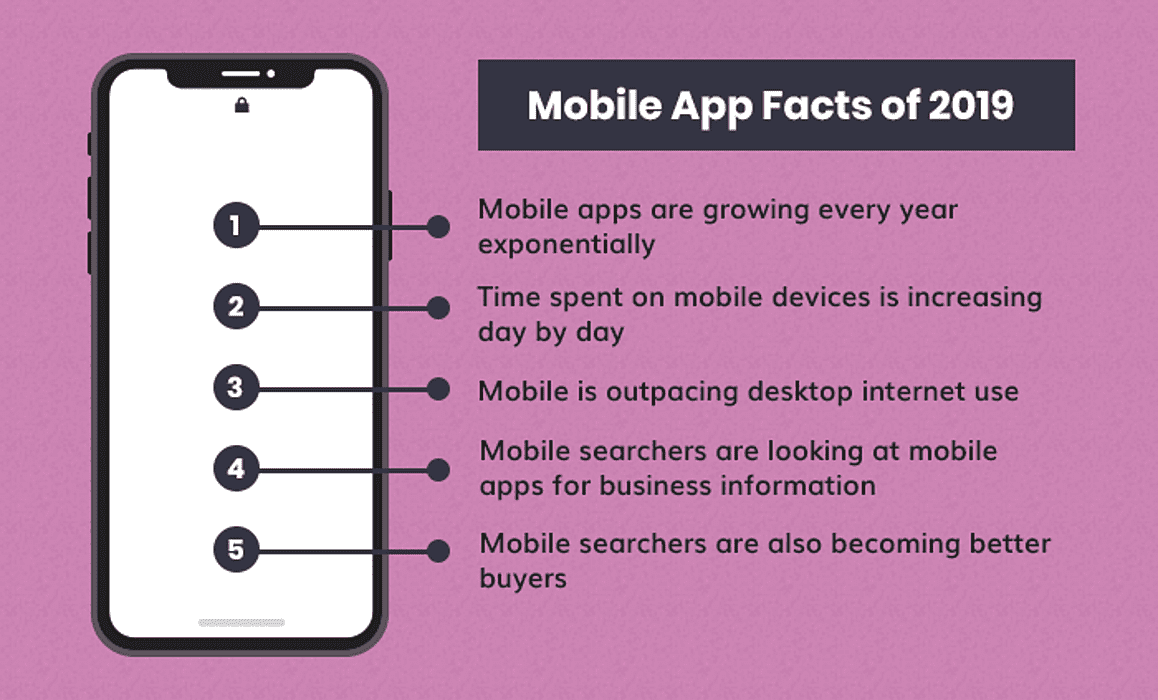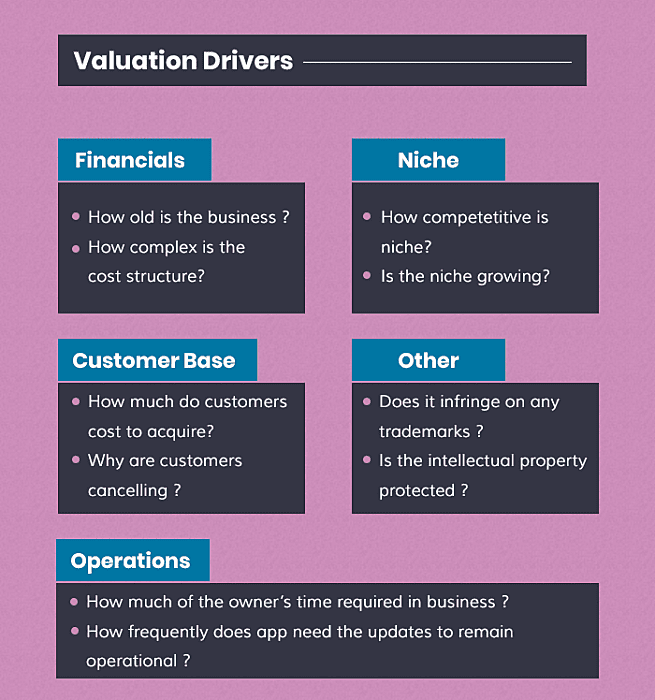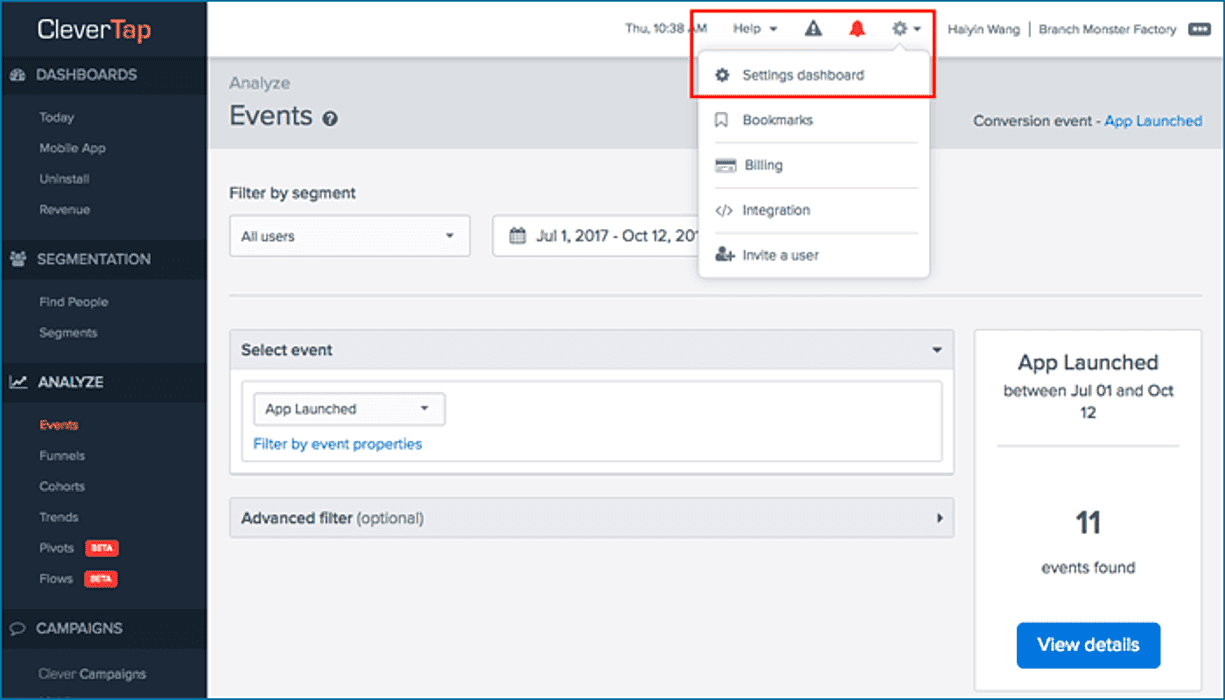
Nowadays it's all about mobile apps, it doesn't matter what age group we belong to because there are apps for everyone out there. From on-demand applications like food ordering and taxi booking to features like Google Assistant and Siri that get the assigned tasks done with just a voice command, our smartphones have everything.
But don't you think that competition has increased a little too much as there are many mobile apps out there that offer similar mobile app development services to the app users?
For instance, when it comes to online food ordering apps we have a ton of options to choose from this includes GrubHub, Postmates, UberEats and many more. So, the real question that arises here is how can one add more value to their mobile application.
That's the reason why we will be discussing the efficient ways in which you can increase the value of your mobile app, for example, by app reviews. Today, there are app businesses worldwide that offer a wide range of digital products and services to their target audience and promote it extensively through printing advertisements, social media platforms, and whatnot.

The above image perfectly depicts how the year 2019 has been for mobile apps and boosting mobile app development services, let’s take a look at some of these facts:
- Year after year mobile, as well as web-based applications, are growing at an exponential rate.
- Mobile searches are turning out to be a preferred option when users look for business information on apps.
- With each day passing, the time spent on smartphones and mobile apps are increasing slowly but steadily.
- Mobile platforms like iOS and Android are rising way faster than internet usage via desktop or web-based platforms.
- The mobile searches are also resulting in users becoming better buyers.
Now that the basic facts are out of the way, it's time we move on straight to the significant factors that contribute to the mobile app value.
What are Valuation Drivers?
The term Valuation Drivers can be defined as the factors that support increasing the value of a business in an event related to a sale opportunity. That's why business owners need to consider some essential factors to increase their cash flows, as well as reduce the risk factor while enhancing the overall value of the business.

These valuation drivers can be roughly divided into a total of five categories which are:
- Financial
- Niche
- Operations
- Customer/User Base
- Miscellaneous
There are some crucial factors, such as the age of the business and niche that cannot be improved after a certain time. To make it more clear we have explained below some of the valuations drivers that should not be missed by a mobile app developer.
Importance of Valuation Drivers
Below is the list of some of the most essential valuation drivers that can add value to your mobile application if utilized properly:
1. Financial Records
Finance is one of the key components in the architecture of any business, it doesn't matter which industry vertical your business belongs in the financials category cannot be overlooked as a valuation driver. When you are calculating the value of your app, it is important that you verify the financial records related to your mobile app as well.
Despite the seriousness of this factor, many app owners and developers still manage to neglect to follow the proper finance practices from the initial stages of the app development process.
For instance, the mobile app developers have the option of using software that can provide them with practices related to investments so that business owners can create long-term value for their mobile app development process like Quickbooks.
2. Business Growth
The growth of a business is exactly what tells about how a mobile application or a business has evolved during a designated period of time. Speaking virtually, we can also say that for an app developer the growth percentage going upward looks more appealing in comparison to declining growth.

As per a recent report by Statista, by the end of the year 2021, the total app downloads number will rise up to a whopping 352 billion app downloads.
The area of growth can be referred to as a segment where documentation is imperative in nature. Another thing that plays a vital role here is the feasibility factor, what you can do next is to make use of some standard tools. Google Analytics is a great example of such tools as it can be easily used to measure your mobile app growth along with different functionalities.
The more minor details you add when measuring your app performance, the better it is to analyze the growth graph. Our expert advice would be to look into creating custom or personalized reports that will further help you get the most out of your analytics as per the app demographics.
3. Earning Evaluation
To establish baseline earnings has now become the basic requirement when it comes to analyzing the value of an app. The earnings that you calculate can also act as a foundation for various other valuation drivers that we will be discussing further in this article.
Here the earrings directly depend on the total amount of gross revenue and also on the structure that the business owner is following for their digital product/service. For instance, we can further elaborate this on the basis of two methods, namely EBITDA and SDE.

In the case of SDE, also known as Seller’s Discretionary Earnings, this method is basically applicable to mobile apps with an estimated valuation of under $5 million along with an owner-operator model. Apart from this, it is common practice to charge some personal expenses to the business entity for purposes of taxes so additionally, the business owner will itself pay it off as a salary.
For determining the earnings of a mobile application whose estimated value exceeds $5 million which are also not owner-operated can be calculated using the second method which is more complex i.e. Earnings Before Interest, Taxes, Depreciation, and Amortization (EBITDA).
This EBITDA method is recommended to be used as an industry-standard method of analyzing the operational performance of larger organizations and brands. So more strategic acquisitions can use revenue multiples for high-growth businesses in order to account for just one-time investments and provide an accurate representation of overall earrings.
4. Abandonment Issue
The app abandonment issue is related to the number of total app downloads, in other words, this can be defined as the phenomenon when the app users fail to use your app after installing it from the Android or iOS app stores. For app developers, the issue of app abandonment is a major challenge that they need to overcome at all costs.
If the abandonment rate for your mobile app is high then you need to conduct an in-depth examination of your complete user onboarding process. Focus on the drop-off points and utilize them to bring more app users towards your application.

Here, tools like Clevertap and Elasticode can come in handy as they provide you with powerful, informative and valuable insights about how your target audience is interacting with your mobile application.
5. Team Involvement
As an app developer or app owner, you are required to spend a significant number of hours on your app business this may include working on the mobile app development services. This level of owner or team involvement also matters a lot in finding out the value of the app business.
But there are few exceptions that you need to keep in mind as well, such as the app users who are not looking forward to giving a committed involvement in the project. This will simultaneously impact the baseline earrings also which we have already discussed above.
6. Documentation Quality
This is the part where we will be discussing the role of the quality of code and the documentation in adding value to a mobile app. For an application developer, the code acts as an integral part of any mobile app or even software. For example, a client would always want to analyze the code, architecture, and documentation for their app project before closing the deal.
A mobile app can turn out to be one of your best investments in terms of value if it is developed keeping in mind the latest industry-agreed coding practices. Any compromises here could eventually lead to a poor code structure and then an unsuitable documentation quality.
7. Operating Procedures
For an app business, it is very important that proper operating procedures are followed which can also be referred to as SPOs (Standard Operating Procedures). Many app developers avoid following these operating procedures because they think these procedures are required only when an issue is faced by the app.

The SOPs are crucial for a smooth transfer of operational responsibilities from one person to another by being more feasible and reducing the time consumption while speeding up the transferring process.
8. User Traffic
The total amount of user traffic you are receiving on your app decides whether your app is getting popular in the targeted industry vertical or not. For any online business or brand that has just recently digitized itself, traffic acts as a lifeline on which they can rely.
The main objective here is to drive traffic to your website or application with the help of relevant app stores and then convert those unique visitors into potential app users. This can be done by both organic and paid search options, but it is important to document from which source your primary traffic comes from. You can even use Google Analytics to track and document the traffic on your mobile application.
9. App Ratings
Receiving great reviews on your app act as one of the most cost-effective methods to boost the value of your mobile application by being social proof for your targeted audience to see. That's why you should encourage your active app users to leave a review/feedback on your app or provide a rating to the app experience.
In addition to this, you also need to remember to not irritate your app users by constantly asking them to review or rate your products and services. For instance, if a user is actively using your app and enjoying it then they are unlikely to have an occasional reminder to rate the app and are more likely to leave a positive rating for your app.
10. User Demographics
Only a few app owners are aware of the fact that app user demographics can be used as an efficient way to track the success of the app among the targeted user base. One of the segments that we cover in demographics is the age of the app users that we want to target for our digital product.

While the age of the app users is a driver that cannot be artificially improved but nonetheless it is an important factor in determining the app value. Users value stability and sustainability, which lead to verifiable financials that further reflect consistent profitability over a certain time period. It can also be stated that, the younger the app business, the higher is the risk factor related to it with a much smaller pool of user base.
11. Revenue With CAC & CLTV
As discussed at the previous point, having regularity in revenue is related to a potential app user's desire for sustainability and stability. This regularity of revenue can be impacted by other factors, one of them being seasonality and to overcome this there have to be additional activities, for example, app promotions.
Apart from this, the app user acquisition cost (CAC) and customer lifetime value (CLTV) are vital components for establishing the value of your mobile app. CAC basically refers to the total amount of money you spend on acquiring a new user for your app. Whereas, CLTV refers to the total amount of revenue a user provides over their lifetime of using your app.
If you want to improve your ratio of CAC to CLTV then as an app developer/owner you need to streamline sales and marketing processes for your application. If your CAC markedly exceeds your CLTV, it will be difficult for your app to enjoy long-term success. According to the general rule of thumb, the CLTV/CAC ratio of 3 is ideal for a majority of app businesses.
12. Downloads & Active Users
In the case of mobile applications, an app user’s level of activity, as well as engagement, should be measured on every level. For many apps, this metric can be of more importance than the number of downloads as it gives a more accurate idea of how the app is being utilized by the respective industry.
One of the primary metrics that is universally used by the app developers for evaluating the performance of their mobile app is the number of downloads that their app has garnered from the relevant app stores like the Apple App Store and Google Play Store.
It is your responsibility to examine the volume of traffic that your app or webpage is receiving from the relevant app stores and other mediums like social media platforms such as Facebook, Twitter, YouTube, etc.
Final Thoughts
These were some of the most important factors that you need to pay attention to as a mobile app developer. Another thing that is important to add value to your mobile app development process is to follow all the required protocols properly. This also means that you need to keep a close eye on the different types of valuation drivers such as financial records, the growth of the app business, etc.
We hope that this article on the topic of adding value to mobile apps provided you with some additional information regarding the mobile app valuation. And in case you are interested in reading more such informative articles about the app development industry then feel free to hit that ‘Subscribe’ button so you don’t miss another update from MobileAppDaily.
Frequently Asked Questions

By Sakshi Kaushik

Content Writer (B2B Editorial)
A passionate writer and tech lover, she strives to share her expertise with mobile app developers and fellow tech enthusiasts. During her moments away from the keyboard, she relishes delving into thriller narratives, immersing herself in diverse realms.












